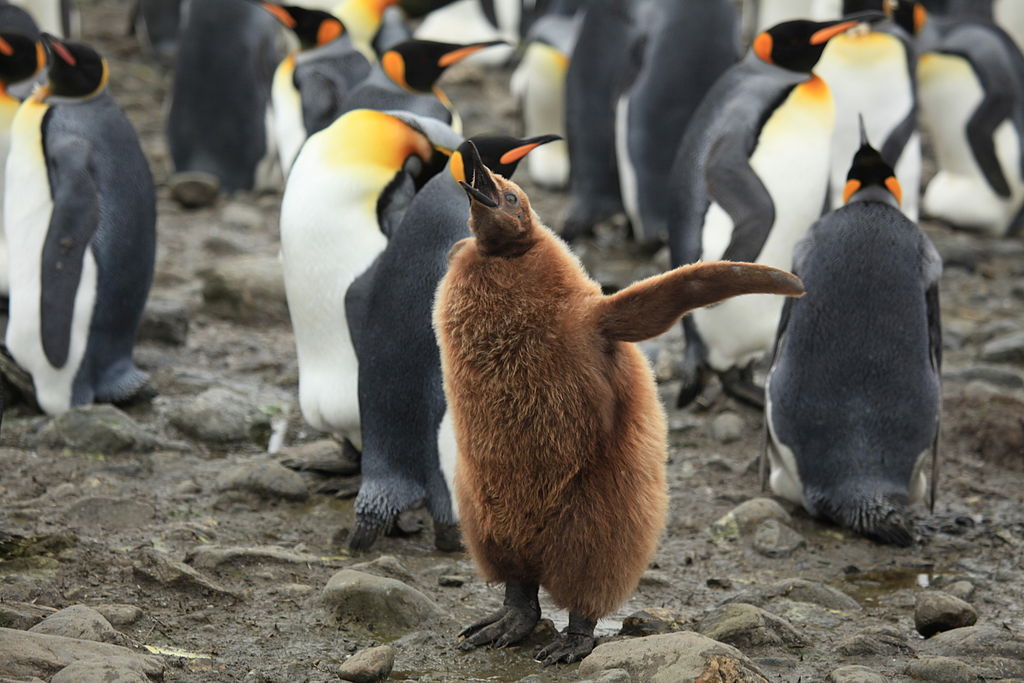Difference between revisions of "Template:POTD protected"
Jump to navigation
Jump to search
Westarctica (talk | contribs) |
Westarctica (talk | contribs) |
||
| (89 intermediate revisions by the same user not shown) | |||
| Line 1: | Line 1: | ||
{| role="presentation" style="margin:0 3px 3px; width:100%; text-align:left; background-color:transparent; border-collapse: collapse; " | {| role="presentation" style="margin:0 3px 3px; width:100%; text-align:left; background-color:transparent; border-collapse: collapse; " | ||
|style="padding:0 0.9em 0 0;" | [[File: | |style="padding:0 0.9em 0 0;" | [[File:King Penguin Chick.jpg|300px|thumb]] | ||
|style="padding:0 6px 0 0"| | |style="padding:0 6px 0 0"| | ||
The '''[[ | The '''[[king penguin]]''' is a large species of [[penguin]], second only to the [[emperor penguin]] in size. King penguins eat small fish, mainly lanternfish, and squid. They are less reliant on [[krill]] and other crustaceans than most [[Southern Ocean]] predators. On foraging trips king penguins repeatedly dive to over 100 meters (300 ft), and have been recorded at depths greater than 300 meters (1,000 ft). King penguins breed on the subantarctic islands at the northern reaches of [[Antarctica]], South Georgia, and other temperate islands of the region. King penguins do not live or breed in [[Westarctica]]. | ||
<p><small>Photographer: Liam Quinn from Canada</small></p> | |||
<p><small>Photographer: | |||
[[:Category:Images|'''(More Images)''']] | [[:Category:Images|'''(More Images)''']] | ||
<div class="potd-recent" style="text-align:right;"> | <div class="potd-recent" style="text-align:right;"> | ||
Latest revision as of 16:14, 17 October 2025
|
The king penguin is a large species of penguin, second only to the emperor penguin in size. King penguins eat small fish, mainly lanternfish, and squid. They are less reliant on krill and other crustaceans than most Southern Ocean predators. On foraging trips king penguins repeatedly dive to over 100 meters (300 ft), and have been recorded at depths greater than 300 meters (1,000 ft). King penguins breed on the subantarctic islands at the northern reaches of Antarctica, South Georgia, and other temperate islands of the region. King penguins do not live or breed in Westarctica.
Photographer: Liam Quinn from Canada |
